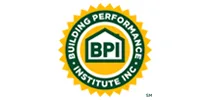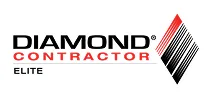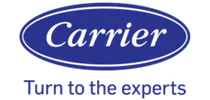Summer in southeastern Pennsylvania brings beautiful weather, outdoor activities, and unfortunately, some unique challenges for maintaining healthy indoor air quality. As families spend more time indoors with their air conditioning systems running, the quality of the air circulating through your home becomes increasingly important for your family’s health and comfort. Christian Heating, Cooling, Plumbing & Electrical has been helping families in Bucks, Chester, Delaware, and Montgomery Counties breathe easier since 1989, and we understand the specific air quality challenges that summer brings to our region.
During the warmer months, several factors conspire to affect your home’s indoor air quality. Closed windows and doors trap pollutants inside, higher humidity levels can promote mold and mildew growth, and increased pollen counts can infiltrate your home despite your best efforts. Add to this the fact that many families spend significantly more time indoors during the hottest parts of the day, and it becomes clear why summer indoor air quality deserves special attention.
The good news is that with the right strategies and some proactive steps, you can maintain excellent indoor air quality throughout the summer months. Let’s explore practical, effective ways to ensure your family breathes clean, healthy air all season long.
Understanding Summer Air Quality Challenges
Before diving into solutions, it’s important to understand what makes summer air quality particularly challenging for Pennsylvania families. Our region’s climate creates a perfect storm of conditions that can compromise indoor air quality if not properly managed.
- Humidity and Moisture Issues: Pennsylvania summers are notoriously humid, with outdoor humidity levels often exceeding 70%. When this moisture infiltrates your home, it creates ideal conditions for mold, mildew, and dust mites to thrive. High indoor humidity also makes your home feel warmer, causing you to lower your thermostat and increase energy costs.
- Pollen and Allergens: The Mid-Atlantic region is home to numerous trees, grasses, and weeds that release pollen throughout the summer months. Even with windows closed, pollen can enter your home through normal air infiltration, on clothing, and through your HVAC system if not properly filtered.
- Reduced Ventilation: During hot weather, most families keep their windows closed and rely on air conditioning for comfort. While this keeps the heat out, it also reduces natural ventilation that would normally help remove indoor pollutants. Without proper mechanical ventilation, contaminants can build up inside your home.
- Increased Indoor Activity: Summer often means more time spent indoors during the hottest parts of the day, increased cooking activity, and sometimes home improvement projects. All of these activities can contribute to indoor air pollution if not properly managed.
Humidity Control: The Foundation of Summer Air Quality
Managing humidity levels is perhaps the most critical aspect of maintaining good indoor air quality during summer. The ideal indoor humidity range is between 30% and 50%, but achieving and maintaining this range requires attention and sometimes additional equipment.
- Your Air Conditioning System’s Role: Your central air conditioning system naturally removes some moisture from the air as it cools your home. However, if your system is oversized for your home, it may cool the air quickly without running long enough to remove adequate moisture. This can leave you with cool but uncomfortably humid air.
Conversely, an undersized system may run constantly without adequately controlling humidity levels. If you’re experiencing humidity problems despite running your air conditioning, it may be time for a professional evaluation of your system’s capacity and performance. - Supplemental Dehumidification: In many Pennsylvania homes, especially those with basements or in particularly humid microclimates, supplemental dehumidification may be necessary. Whole-home dehumidifiers can be integrated with your HVAC system to provide precise humidity control throughout your home.
Portable dehumidifiers can be effective for specific problem areas, such as basements, bathrooms, or bedrooms. When using portable units, be sure to empty the collection tank regularly and clean the unit according to manufacturer instructions to prevent mold growth. - Moisture Source Control: Reducing moisture sources in your home is just as important as removing excess humidity. Use exhaust fans in bathrooms and kitchens, fix leaky pipes promptly, and avoid overwatering houseplants. Ensure your clothes dryer is properly vented to the outside, and consider using a clothesline for some items to reduce indoor moisture from the dryer.
Advanced Air Filtration Strategies
Your HVAC system’s air filter is your first line of defense against airborne pollutants, but not all filters are created equal. Understanding your filtration options can help you choose the best approach for your family’s needs.
- Understanding MERV Ratings: Air filters are rated using the Minimum Efficiency Reporting Value (MERV) scale, which ranges from 1 to 16 for residential applications. Higher MERV ratings indicate better filtration of smaller particles. For most homes, filters with MERV ratings between 8 and 13 provide excellent filtration without restricting airflow excessively.
MERV 8-10 filters effectively capture pollen, dust mites, and larger particles. MERV 11-13 filters can capture smaller particles including some bacteria and smoke. However, higher-efficiency filters may require more frequent changes and can restrict airflow if your system isn’t designed to handle them. - Filter Maintenance During Summer: Summer’s increased system runtime means filters accumulate particles more quickly. Check your filters monthly during peak cooling season and replace them when they appear dirty or according to manufacturer recommendations. A dirty filter not only reduces air quality but also forces your system to work harder, increasing energy costs and potentially causing damage.
- Whole-Home Air Purification: For families with allergies, asthma, or other respiratory sensitivities, whole-home air purification systems can provide an additional layer of protection. These systems work in conjunction with your HVAC system to remove particles, odors, and even some bacteria and viruses from your home’s air.
UV light systems installed in your ductwork can help control mold and bacteria growth on your system’s coils and in your ductwork. Electronic air cleaners use electrical charges to capture particles that might pass through traditional filters. Each technology has its advantages, and the best choice depends on your specific air quality concerns.
Don’t wait until your family’s health is affected — call Christian Heating, Cooling, Plumbing & Electrical today to discuss advanced air filtration options for your home.
Strategic Ventilation for Summer Comfort
While keeping windows closed during hot weather is generally advisable, strategic ventilation can help improve indoor air quality without compromising comfort or energy efficiency.
- Timing Your Ventilation: Take advantage of cooler morning and evening hours to introduce fresh outdoor air into your home. Open windows and use fans to create cross-ventilation during these cooler periods, then close up the house before temperatures rise.
Monitor local air quality reports and pollen counts before opening windows. On days when outdoor air quality is poor or pollen counts are high, keep windows closed and rely on your HVAC system’s filtration to maintain indoor air quality. - Mechanical Ventilation Solutions: Energy recovery ventilators (ERVs) and heat recovery ventilators (HRVs) can provide controlled ventilation without the energy penalty of opening windows. These systems bring in fresh outdoor air while recovering energy from the outgoing stale air, helping maintain comfort while improving air quality.
Bathroom and kitchen exhaust fans are crucial for removing moisture and pollutants at their source. Use these fans during and after activities that generate moisture or odors, and ensure they’re vented properly to the outside rather than into attics or crawl spaces. - Natural Ventilation Enhancement: When outdoor conditions permit, use window fans to enhance natural ventilation. Exhaust fans in upper-level windows can help remove hot air, while intake fans in lower-level windows can bring in cooler outdoor air. This stack effect can help cool your home naturally during suitable weather conditions.
Indoor Plant Strategies for Air Quality
Houseplants can contribute to better indoor air quality, but they require careful management during summer months to avoid creating humidity and mold problems.
- Choosing the Right Plants: Some plants are particularly effective at removing common indoor air pollutants. Spider plants, peace lilies, and snake plants are known for their air-purifying qualities and are relatively easy to care for. However, avoid overwatering, which can create humidity problems and promote mold growth in soil.
- Plant Maintenance: During summer, monitor your houseplants carefully for signs of overwatering or pest problems. Use saucers under pots to prevent water damage to floors and furniture, but empty them regularly to prevent standing water that can harbor bacteria or insects.
Consider moving some plants outdoors during summer months to reduce indoor humidity while still enjoying their benefits. This can be particularly helpful for plants that prefer higher humidity levels that might be problematic indoors.
Cleaning and Maintenance for Better Air Quality
Regular cleaning takes on added importance during summer when your home is sealed up and air circulation is reduced. A comprehensive cleaning strategy can significantly improve your indoor air quality.
- HVAC System Maintenance: Beyond filter changes, your HVAC system needs regular professional maintenance to ensure it’s not contributing to air quality problems. Dirty coils, clogged drains, and contaminated ductwork can all negatively impact indoor air quality.
Schedule professional duct cleaning if you notice musty odors, visible mold growth, or excessive dust in your home. While duct cleaning isn’t necessary for every home every year, it can be beneficial in certain situations, particularly after home renovations or if you’ve had moisture problems. - Surface Cleaning: Dust and vacuum regularly using a vacuum with a HEPA filter to prevent particles from becoming airborne. Pay special attention to areas where dust accumulates, such as ceiling fans, light fixtures, and air vents.
Use microfiber cloths for dusting, as they capture particles more effectively than traditional dusting cloths. Avoid using aerosol cleaners and air fresheners, which can add chemicals to your indoor air. Instead, opt for natural cleaning solutions or products with low volatile organic compound (VOC) content. - Carpet and Upholstery Care: Carpets and upholstered furniture can harbor allergens, dust mites, and other pollutants. Vacuum carpets and rugs at least twice weekly using a vacuum with strong suction and a HEPA filter. Consider professional carpet cleaning annually, particularly if you have pets or family members with allergies.
For homes with severe allergy concerns, consider replacing carpeting with hard flooring surfaces that are easier to keep clean and don’t harbor allergens as readily.
Managing Specific Summer Pollutants
Summer brings unique indoor air quality challenges that require targeted strategies to address effectively.
- Pollen Management: Even with windows closed, pollen can enter your home on clothing, pets, and through normal air infiltration. Create a “decontamination zone” near your main entrance where family members can remove shoes and outer clothing before entering living areas.
Shower and change clothes after spending significant time outdoors, especially during high pollen days. Keep pets groomed and consider wiping them down with a damp cloth after outdoor activities to remove pollen from their fur. - Mold and Mildew Prevention: Summer’s high humidity creates ideal conditions for mold and mildew growth. Monitor areas prone to moisture problems, such as basements, bathrooms, and around air conditioning units. Use exhaust fans and dehumidifiers to control moisture, and address any water leaks promptly.
Clean visible mold growth immediately using appropriate cleaning solutions, and address the underlying moisture problem to prevent recurrence. For extensive mold problems, consider professional remediation to ensure complete removal and prevent health risks. - Cooking and Kitchen Odors: Summer cooking can contribute to indoor air quality problems, especially when using the oven or stovetop during hot weather. Use range hoods and exhaust fans when cooking, and consider grilling outdoors when possible to keep heat and cooking odors outside.
Clean range hoods and exhaust fans regularly to ensure they’re operating effectively. Replace or clean range hood filters according to manufacturer recommendations to maintain their effectiveness.
Need expert help with indoor air quality solutions? Contact Christian Heating, Cooling, Plumbing & Electrical now to improve your family’s summer comfort and health.
Technology Solutions for Air Quality Monitoring
Modern technology offers new ways to monitor and improve your home’s air quality, giving you real-time information about the air your family breathes.
- Air Quality Monitors: Portable air quality monitors can measure various pollutants, including particulate matter, volatile organic compounds, and humidity levels. These devices help you understand your home’s air quality patterns and identify when additional measures are needed.
Some monitors can alert you when air quality drops below acceptable levels, allowing you to take immediate action such as increasing ventilation or running air purifiers. Smart monitors can even integrate with your home automation system to automatically adjust ventilation or air purification based on current conditions. - Smart Thermostats and HVAC Controls: Advanced thermostats can monitor humidity levels and coordinate with whole-home dehumidifiers to maintain optimal conditions. Some systems can also monitor air filter condition and remind you when replacement is needed.
Smart HVAC controls can optimize system operation for both comfort and air quality, running fans for air circulation even when heating or cooling isn’t needed, and coordinating various air quality equipment for maximum effectiveness.
Special Considerations for Vulnerable Family Members
Families with young children, elderly members, or individuals with respiratory conditions need to pay special attention to indoor air quality during summer months.
- Children’s Unique Needs: Children breathe more air per pound of body weight than adults and are more susceptible to air quality problems. Their developing respiratory systems are particularly vulnerable to pollutants, making clean indoor air especially important.
Keep children’s play areas well-ventilated and clean, and consider using air purifiers in bedrooms and playrooms. Be particularly careful about cleaning products and other chemicals used around children, opting for natural alternatives when possible. - Managing Asthma and Allergies: For family members with asthma or allergies, summer air quality management becomes even more critical. Work with healthcare providers to understand specific triggers and develop strategies to minimize exposure.
Consider upgrading to higher-efficiency air filters, adding whole-home air purification, and maintaining stricter humidity control. Keep rescue medications easily accessible and ensure all family members know how to respond to respiratory emergencies. - Creating Clean Air Zones: Designate certain areas of your home, particularly bedrooms, as “clean air zones” with enhanced air quality measures. Use portable air purifiers, maintain lower humidity levels, and keep these areas as dust-free as possible.
Seasonal Preparation and Planning
Preparing for summer air quality challenges before they become problems can help ensure your family’s comfort and health throughout the season.
- Pre-Summer System Preparation: Schedule professional HVAC maintenance before the cooling season begins to ensure your system is ready to handle both comfort and air quality needs. This includes cleaning coils, checking drainage systems, and verifying that all air quality equipment is functioning properly.
Replace air filters with fresh, high-quality filters at the beginning of the season, and stock up on replacement filters so you can change them regularly throughout the summer. - Monitoring and Adjustment: Develop a routine for monitoring your home’s air quality throughout the summer. This might include checking humidity levels weekly, inspecting air filters monthly, and paying attention to any changes in air quality or family comfort.
Be prepared to adjust your strategies based on changing conditions. Particularly humid periods may require additional dehumidification, while high pollen days might call for keeping windows closed and running air purifiers more frequently. - Planning for Extreme Conditions: Pennsylvania summers can bring periods of extreme heat, humidity, or poor outdoor air quality. Have a plan for managing indoor air quality during these challenging periods, including backup air purification methods and strategies for maintaining comfort without compromising air quality.
The Long-Term Benefits of Good Air Quality
Investing in good indoor air quality during summer months provides benefits that extend far beyond immediate comfort. Clean indoor air contributes to better sleep, improved concentration, and reduced respiratory symptoms for all family members.
Good air quality can also protect your home and belongings. Proper humidity control prevents damage to wood furniture and flooring, reduces static electricity problems, and helps preserve books, artwork, and other sensitive items.
From a financial perspective, maintaining good indoor air quality often goes hand-in-hand with energy efficiency. Proper humidity control allows you to set your thermostat higher while maintaining comfort, and clean HVAC systems operate more efficiently than dirty ones.
Ready to breathe easier this summer? Schedule your indoor air quality consultation with Christian Heating, Cooling, Plumbing & Electrical today and discover how professional solutions can improve your family’s comfort and health.
Taking Action for Better Air Quality
Improving your home’s indoor air quality doesn’t have to be overwhelming or expensive. Start with basic steps like regular filter changes and humidity monitoring, then gradually add more advanced solutions based on your family’s specific needs and concerns.
Remember that indoor air quality is an ongoing concern that requires consistent attention, especially during challenging summer months. By implementing these strategies and working with qualified professionals when needed, you can create a healthy, comfortable indoor environment that protects your family’s health and enhances your quality of life.
The investment you make in indoor air quality today will pay dividends in improved health, comfort, and peace of mind throughout the summer and beyond. Don’t wait until air quality problems affect your family’s well-being – take proactive steps now to ensure clean, healthy air in your home all season long.








